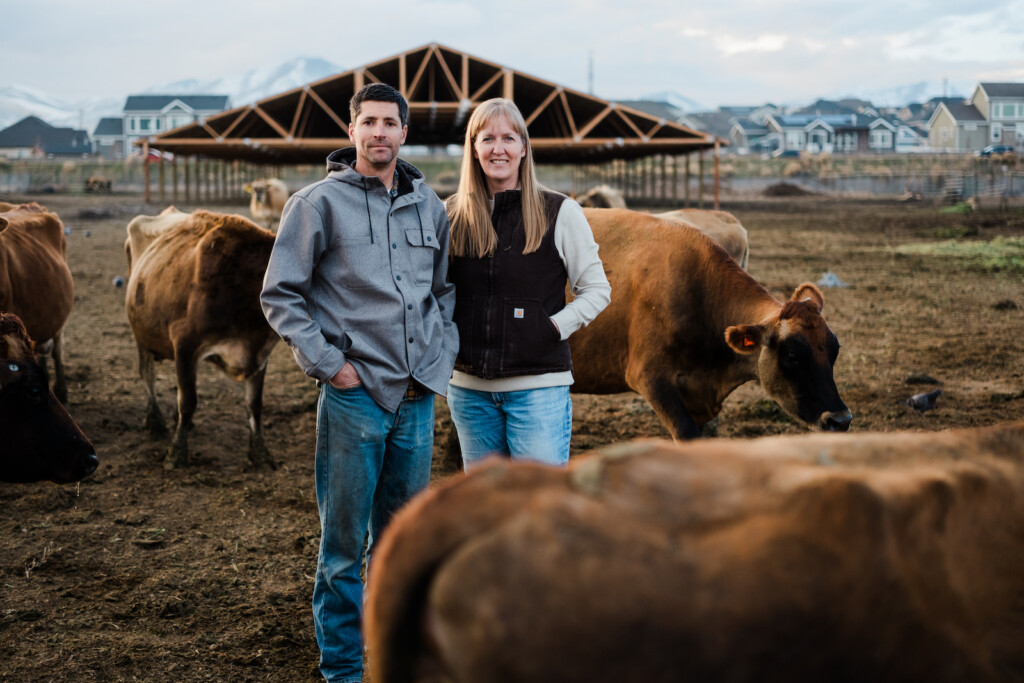Gluten-free products are flooding the market. More and more health-conscious people are demonizing gluten and all its tasty goodness. Books such as Wheat Belly became bestsellers. Is this gluten-free craze justified or is it another diet fad? Utah experts talk about it.
Aside from a stint in the military in Vietnam, 77-year-old wheet farmerBob Barry, recently named Farmer of the Year by the County Conservation Board, spent most of his adult life farming along the Utah-Colorado border.
In recent decades, many of Barry’s 6,000 acres produced organic winter wheat, a crop that has grown in popularity due to increased gluten sensitivity across the U.S. Barry’s wheat is marketed by Utah- and California-based Central Milling.
“For the most part we’ve never used chemicals,” Barry said recently by phone. “If you keep your land clean from all weeds, noxious and otherwise, then you have less issues.”
But that task is easier said than done, Barry noted, especially with irrigated land where weeds enter through the water supply. But the Monticello area does not require irrigation, and Barry can rely on snowmelt and rainfall to provide enough moisture. Still, the fight between weeds and crops never ends.
“Farmers fight weeds, that’s what we do … you can’t raise weeds and a crop at the same time,” Barry said. So, at times, they spot spray weeds and then farm around that area for three years before putting it back into rotation.
A product called 2-4-D was the only weed killer he used years ago, Barry said, but he remembers the days when crops were routinely sprayed from the air.
Glyphosate concerns
In 1973, Monsanto began marketing its powerful glyphosate-containing herbicide Roundup — notably the most widely used herbicide in the US.
But decades later, the International Agency for Research on Cancer named glyphosate as a probable carcinogen. Multiple class-action lawsuits against the company led Monsanto to unload its longtime best seller on Bayer in 2018.
But glyphosate continues to surface in similar products after Monsanto’s patent expired in 2000. Monsanto and other companies also produce genetically modified seeds that can withstand glyphosate. Some suspect that genetically modified foods could be responsible for the spike in gluten intolerance across the US, but no conclusive studies have been conducted to definitively establish that link.
Leslie Peterson, a naturopathic physician who runs the Full Circle Care Clinic in Murray, has witnessed this increase in the women she’s treated over the past decade.
Peterson noted that glyphosate — the most widely used herbicide in the US — is an antibiotic that works by breaking down the cell walls of bacteria.
“I see a lot of bacterial imbalance (in the gut) — overgrowth of bad things and undergrowth of good things,” Peterson said, noting that disruption of the gastrointestinal tract has been linked to obesity, Type 2 Diabetes, high blood pressure and cardiovascular disease.
In her naturopathic practice, Peterson uses blood tests that can measure environmental toxin levels (including glyphosate) in a patient’s body.
“And 100 percent of people have environmental toxins in their bodies,” Peterson said, noting that 60 to 70 percent of her patients feel better after eliminating gluten from their diets.
Cross-breeding vs. Genetically Modified
Margaret Krause, an assistant professor in Utah State University’s Department of Plants, Soils and Climate, cross-breeds winter wheat as part of her job.
That work helps produce stronger seeds and crops for the Monticello area where irrigation water isn’t used.
Krause believes there’s a significant difference between cross-breeding and genetic modification.
“I think it’s a big misconception that the public has,” she said.
Her work deals with facilitating sexual reproduction between two different types of wheat, each having its own long suit.
Wheat pollinates itself, Krause explained, so she and her team don magnifiers to remove one plant’s ability to produce pollen. Then the pollen produced by the other breed of wheat does the job instead. But the total process of establishing a new breed can span a dozen years.
“We have to wait until the end of the season when the plants have matured and then we can harvest seed off that and plant that again,” Krause said. “Technically, those are the children — but we have to grow it for several years before it’s genetically fixed.”
Krause distinguishes what she does from genetic modification, which involves biotechnologically inserting a gene from one species to another.
“That’s not what our program is focused on,” Krause said.

Questions remain
Both Krause and Barry agree that more studies are needed to establish the link between genetically modified foods and glyphosate to gluten intolerance and other serious diseases.
“The scientific community has not reached a consensus on why more [gluten intolerance] is cropping up,” Krause said. “It’s probably a combination of different factors.”
And Barry is hesitant to vilify Roundup, even though he doesn’t use it himself.
“Roundup created some problems but I think it also solved some problems,” Barry said. “There’s been some overuse of it and farmers got dependent on it. When they did, some weeds got resistant … and they had to go to something else or a stronger dose.”
Feature Image courtesy of Bob Barry.






